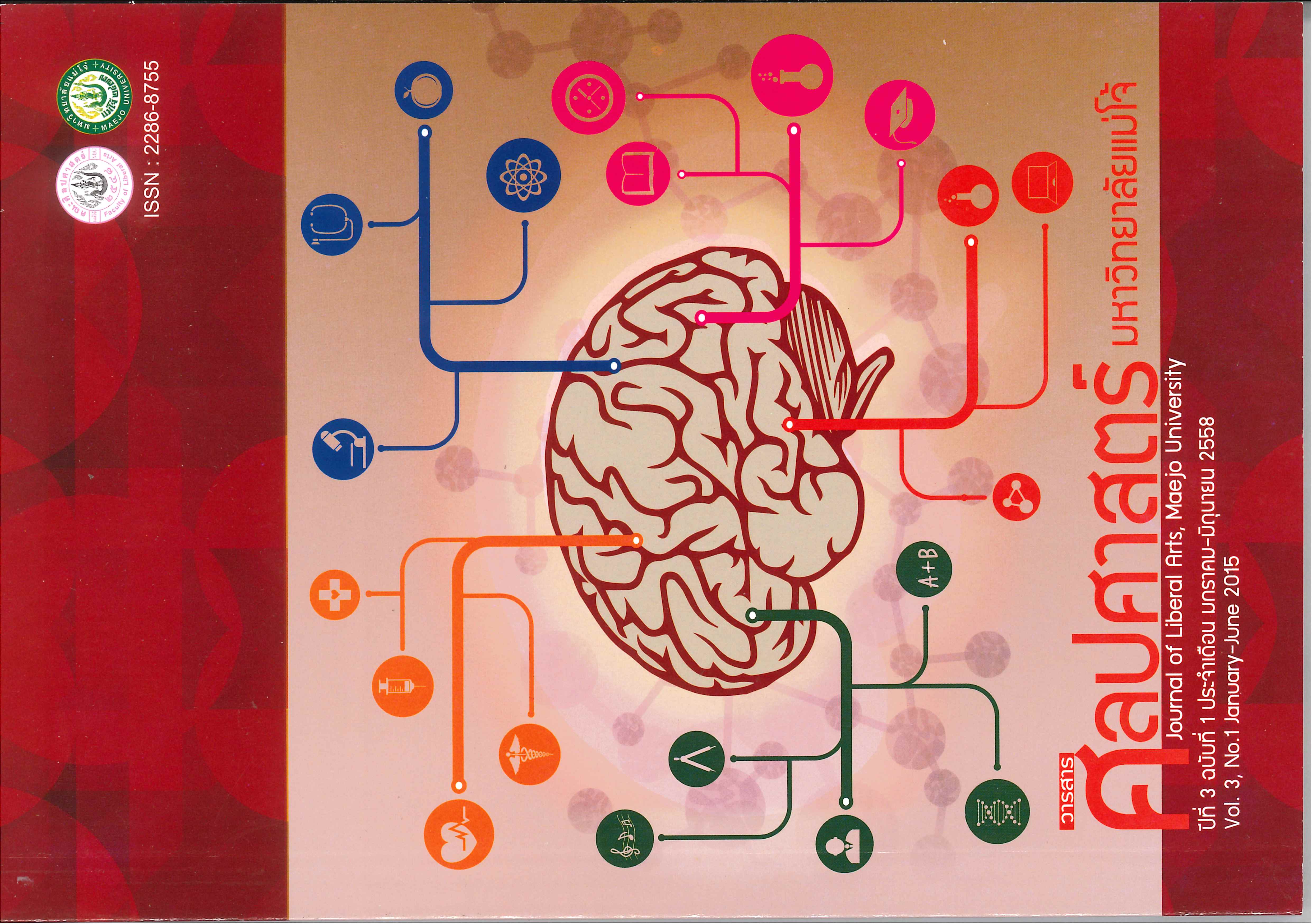ความต้องการจัดกิจกรรมจิตสาธารณะของนักศึกษา มหาวิทยาลัยแม่โจ้ จังหวัดเชียงใหม่ (Needs for Public Mind Activity Holding of Maejo University Undergraduate Students, Chiang Mai Province)
Main Article Content
Abstract
This study aimed to explore needs for public mind activity holding of Maejo University undergraduate students, Chiang Mai province. It was a qualitative study. The sample group in this study consisted of 289 students obtained by purposive sampling. They were enrolled in the second semester of the academic year 2013. Locale of the study was a classroom where the researcher usually used for facilitating teaching and learning activities and it lasted for 6 months. Structured-interview was used for data collection. It was in the form of open-ended questions (3 items). Obtained data were analyzed in accordance with public mind theoretical framework. This was on the basis of 3 components and 6 indicators.
Results of the study revealed that the informants truely needed to hold public mind activities. This included the component about indicator using on the maintenance of common or public property in the university e.g. painting the buildings and the fence and dormitory and campus cleaning. Besides, they wanted to develop many things outside the university e.g. developing schools in remote areas, communities, temples, historical sites as well as the conservation of forests and endangered wildlife. For the indicator on thrifty and careful using of common or public property, it was not found that the informants wanted to hold public mind activities. For the indicator on tasks in the university, the following were found : assisting tasks of their major field of study; growing trees in the university ; and assisting seniors working outside the university e.g. assisting people facing natural disaster (flood) and growing vetivar grass to prevent soil erosion. For volunteer indicator, the following were found : the willingness to participate in the 80th year Maejo Agriculture Day; tutoring for friends and juniors ; leaders on recreational activities outside the university e.g. remote village development camp and blood donation. For the component on rights respect, indicators on common property seizing and giving a chance for others to use common property, it was not found that the informants wanted to hold public mind activities regarding to these as mentioned.

